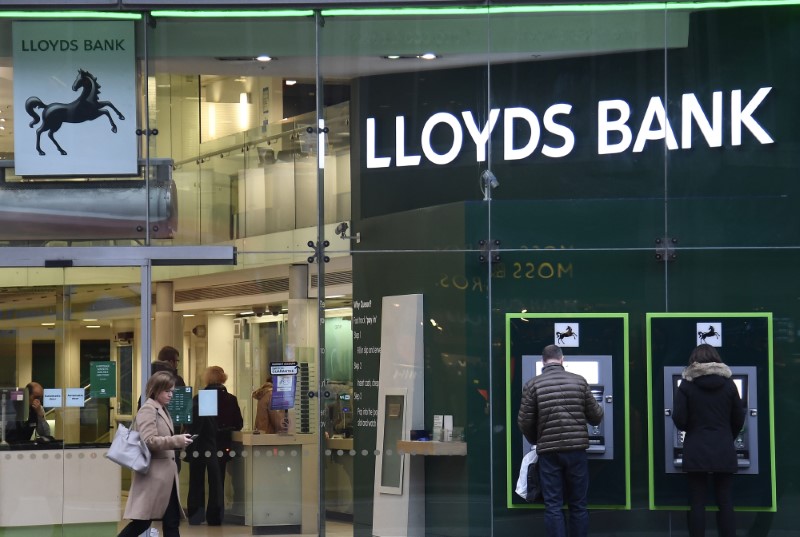Proactive Investors - The banking reporting season has come to a close with results from Lloyds Banking Group PLC, NatWest Group PLC and Barclays PLC all sparking sharp falls in share prices. So what have we learnt? Here are five key takeaways.
Margin pressures
All three high street lenders highlighted improvements in net interest margins in 2022 which helped boost profits. As interest rates have risen quickly, lending rates have done the same.
The criticism the banks face is that savings rates have not moved at the same pace. All good for the lenders and shareholders in 2022 as they reaped their rewards in bumper profits, dividends and buybacks.
But margins could be squeezed in 2023 as the pace of change in interest rates slows and savings rates begin to catch up.
"It may be that we've seen the peak of margin," said William Chalmers, finance chief of Britain's biggest domestic bank Lloyds.
Nonethless Barclays and NatWest are looking at margins of around 3.2% in 2023 and Lloyds 3.05%. For Lloyds this implies a slowdown from the 3.22% reported in the fourth quarter.
Bad debt surprise?
The results were expected to paint a pretty grim picture of the UK economy with bad debt provisions forecast to jump sharply. But while they did rise this was actually one area where Lloyds and NatWest, in particular, did better than the City hoped. Barclays had its own issues with litigation charges but these will be one-offs.
Given the recent strong PMI data, falling inflation and a resilient labour market there must be some hope that this is an area that could surprise on the upside. Much could depend on the housing market as millions of homeowners face the prospect of remortgaging.
But since the mad days in the wake of Kawsi Kwarteng's mini-budget mortgage rates have been steadily falling with leading names now offering products below 4%.This could help reduce the pressure on consumer finances already stetched by rising food and energy prices.
Fears of a domestic recession have also reduced and there are growing hopes that the UK economy won't tank in 2023 which could lead to some of those provisions being released.
Competition is hotting up – 2023, the year of the saver?
The three big banks, Lloyds, NatWest and Barclays, saw their combined deposits fell by £34.7bn in the last three months of 2022 alone, according to a Reuters analysis of their results, partly reflecting a flight by customers in search of higher rates. So is competition hotting up?
A report from the Current Account Switching Service showed a record number of people switched their custom to a different bank in the final three months of last year.
A total of 376,107 accounts were moved between October and December - the highest since the seven-day switching service began in 2013.
Cash incentives led thousands of people to move their current accounts, as they sought extra income to help pay bills and deal with rising prices.
The pressure on the UK’s banks has been intensified by digital offerings from US entrants into the market such as JPMorgan and Goldman Sachs.
Banks have faced criticism at the slow pace of their reaction to rising rates and the limp offers on savings accounts. A quick glance at the websites of Lloyds and NatWest shows why.
Lloyds' flagship Easy Saver instant access account pays just 0.6% while NatWest's Flexible Saver instant access account likewise offers 0.65%.
So could 2023 finally be the year of the saver?
Bumper bonuses and pay raise windfall tax chat
Never far away from the headlines is talk of a windfall tax. Lenders have faced calls for a tax on profits similar to those seen in the energy sector after bonuses were increased and top executives rewarded with bumper pay packets.
NatWest’s boss Dame Alison Rose trousered £5.2mln in pay in 2022, becoming the bank’s second-highest-paid boss after the controversial ex-banker Fred Goodwin, All part of her long-term incentive plan, NatWest said.
The bank also upped its total bonus pool for bankers to £367mln from £298mln.
They were not alone. Lloyds boss Charlie Nunn could receive £9.1mln in pay and bonuses in 2023 while staff at the bank will share a £446mln bonus pot.
As Unite’s general secretary Sharon Graham said: “It’s offensive that government ministers are insisting NHS workers take another savage pay cut while their big City banker friends are given carte blanche to make billions.”
Fran Boait executive director of campaign group Positive Money said a windfall tax was needed.
“The reality is that big banks are heaping crippling interest rates on to small businesses and mortgage holders, while reducing the amount they lend to those who need it.”
Whether chancellor Jeremy Hunt targets the banks remains to be seen but in an uncertain encironment and with a financial crisis in the not too distant past it would appear unlikely.
Things could be worse
But to end on a positive note. The three banks reported cumulative profits of over £19bn, share buybacks of £3.3bn, plus bumper dividends for shareholders and big handouts for bosses and staff.
Yes, guidance disappointed. But guidance is there to be beaten. A more resilient performance by the UK economy in 2023 could bring lower bad debts, more deals (in the case of Barclays) and an improved housing market which will boost lending.
The banks all face challenges but 2023 should still see full coffers at the Big Three.
